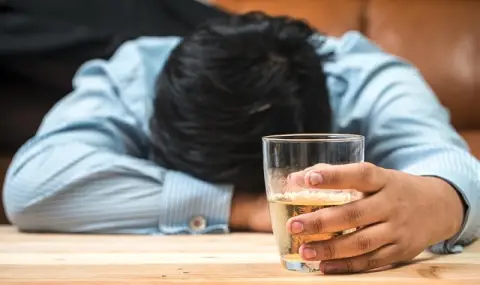In the Russian Vologda region, over 70 percent of deaths among men of working age are linked to alcohol abuse. That's why the authorities are trying to reduce consumption. Is this working?
Georgi Filimonov is the governor of the Russian Vologda region, located about 400 kilometers northeast of the Russian capital. There, over 70 percent of deaths among men of working age are related to diseases or accidents caused by alcohol consumption - cirrhosis of the liver, heart failure, inflammation of the pancreas, driving under the influence of alcohol, beatings, stabbings, says a report by the German public media ARD.
A sharp increase in people suffering from alcoholism
"This is a serious social disease and a scourge on our society," the governor told the German media. Last year, the number of people suffering from alcoholism increased by 30 percent, it is clear from his words. "And all this is happening in peaceful conditions, not on the front line."
A man of action and loyal supporter of Vladimir Putin, Filimonov has made headlines before - for example, when he erected a monument to Stalin in the administrative center of Vologda or when he insisted on an unconditional ban on abortions. Now he has declared war on alcohol. At his suggestion, the local parliament passed a law according to which alcohol is now sold only between 12:00 and 14:00 on weekdays. After these hours - no beer, wine or vodka.
How to get around the ban
Meanwhile, the topic is attracting media attention: reporters tell how taxi drivers sell alcoholic beverages late at night and at night directly from the trunks of their cars - for a certain surcharge, of course. Other reports describe scenes of frenzied alcohol shopping - how people line up in long lines in front of stores at lunchtime or how they fill entire carts with bottles. Some publications even draw a parallel with the time of prohibition in Chicago.
The authorities categorically deny this and have even sent an official refutation: newspaper reports claiming that things are like the old days in Chicago are untrue, and illegal alcohol sales are being effectively countered, according to the local authorities.
"The number of drunk people on the streets has not decreased"
A survey on the streets of Vologda makes it clear what the attitude of local people is towards the adopted restrictions. One of the respondents said that he generally approves of the measures, but does not see any results from them: "In the evening, you don't see any fewer drunk people on the streets".
Another resident of Vologda also said that he considers alcohol a great evil, but at the same time added: "If a person does not even have the freedom to decide for himself whether to poison himself or not, this definitely has little to do with democracy".
A third noted that where there are bans, there are also strategies for circumventing them. "People are stocking up - buying whole cases of alcohol. And if there is no licensed alcohol, they either get it from smugglers or make their own alcohol."
The measures do not solve the problem
What is happening in Vologda is actually a very light experiment - because on weekends everything is as before, the restrictions do not apply to pubs anyway, and besides, one can always walk to the neighboring region, where the law does not apply.
Nevertheless, Filimonov defines the measures as a complete success: violations due to alcohol consumption have decreased by 30 percent, accidents with drunk drivers - by as much as 50 percent, and there have been fewer cases of alcohol poisoning.
And although it is clear that limiting alcohol sales does not solve the essence of the problem, Moscow has already received concerned inquiries from other regions - whether the example from Vologda will be applied elsewhere. A spokesman for Putin has since reassured them that there are no such plans.
